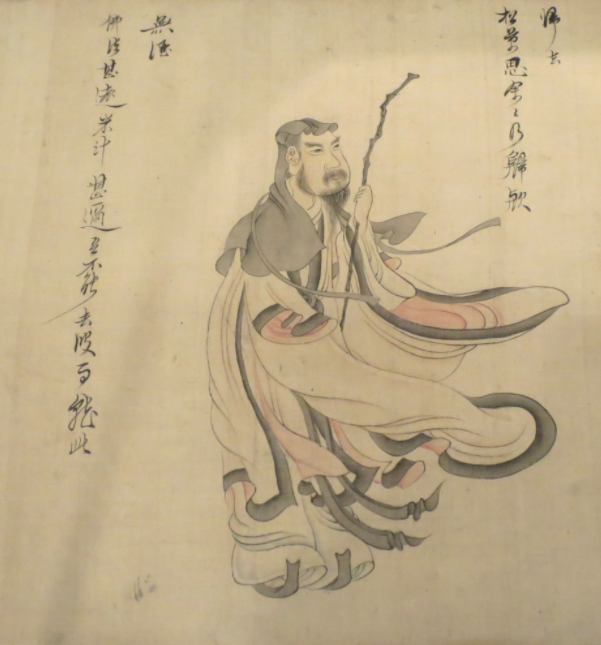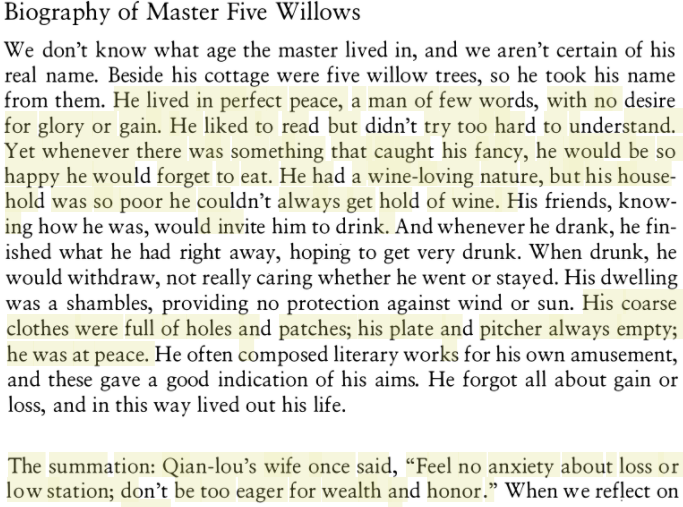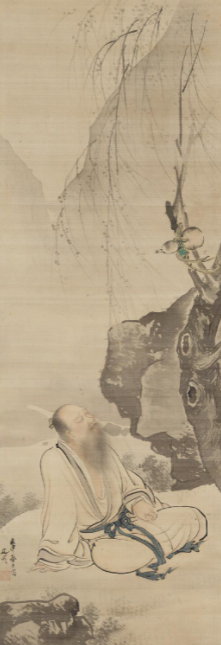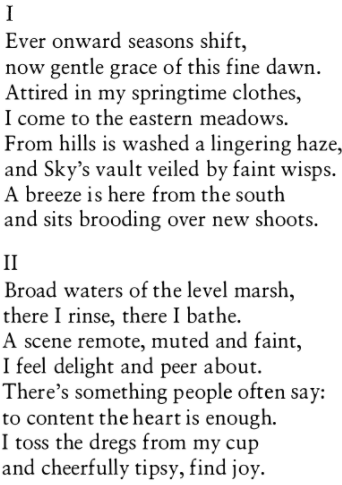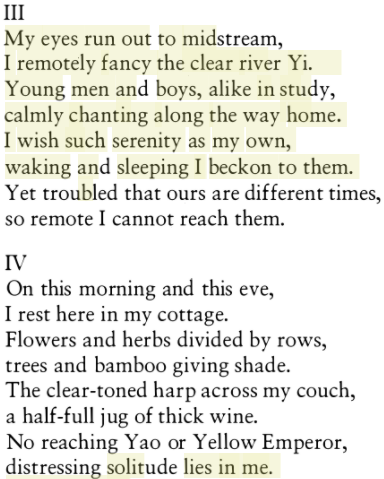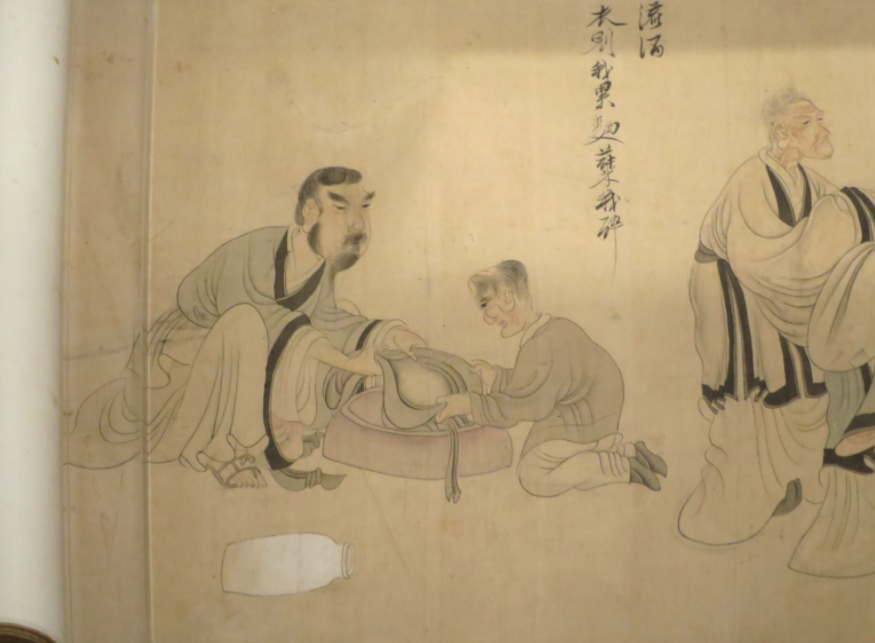Tao Yuanming
Image: Returning Home (1650) By Chen Hongshou.
The panting shows Yuanming returning to his hometown to live out the rest of his days away from the extremely stress inducing political sphere.
The panting shows Yuanming returning to his hometown to live out the rest of his days away from the extremely stress inducing political sphere.
Tao Yaunming was born in 365 during the Eastern Jin Dynasty and died in 427 during the Liu Song Dynasty. Yuanming spent a lot of time living alone in the countryside, farming, reading, drinking wine, and his poems were based on these very same topics. He was especially inspired by the beauty of nature that surrounded him. He referred to himself in earlier writings as "Yuanming"; With the demise of the Eastern Jin dynasty in 420, he began to refer to himself as "Qian", which means "hiding" (Tao Qian, 2020). Some hypothesize that could have been representative of his final withdrawal into the quiet life in the country and his decision to avoid any further participation in the political scene.
